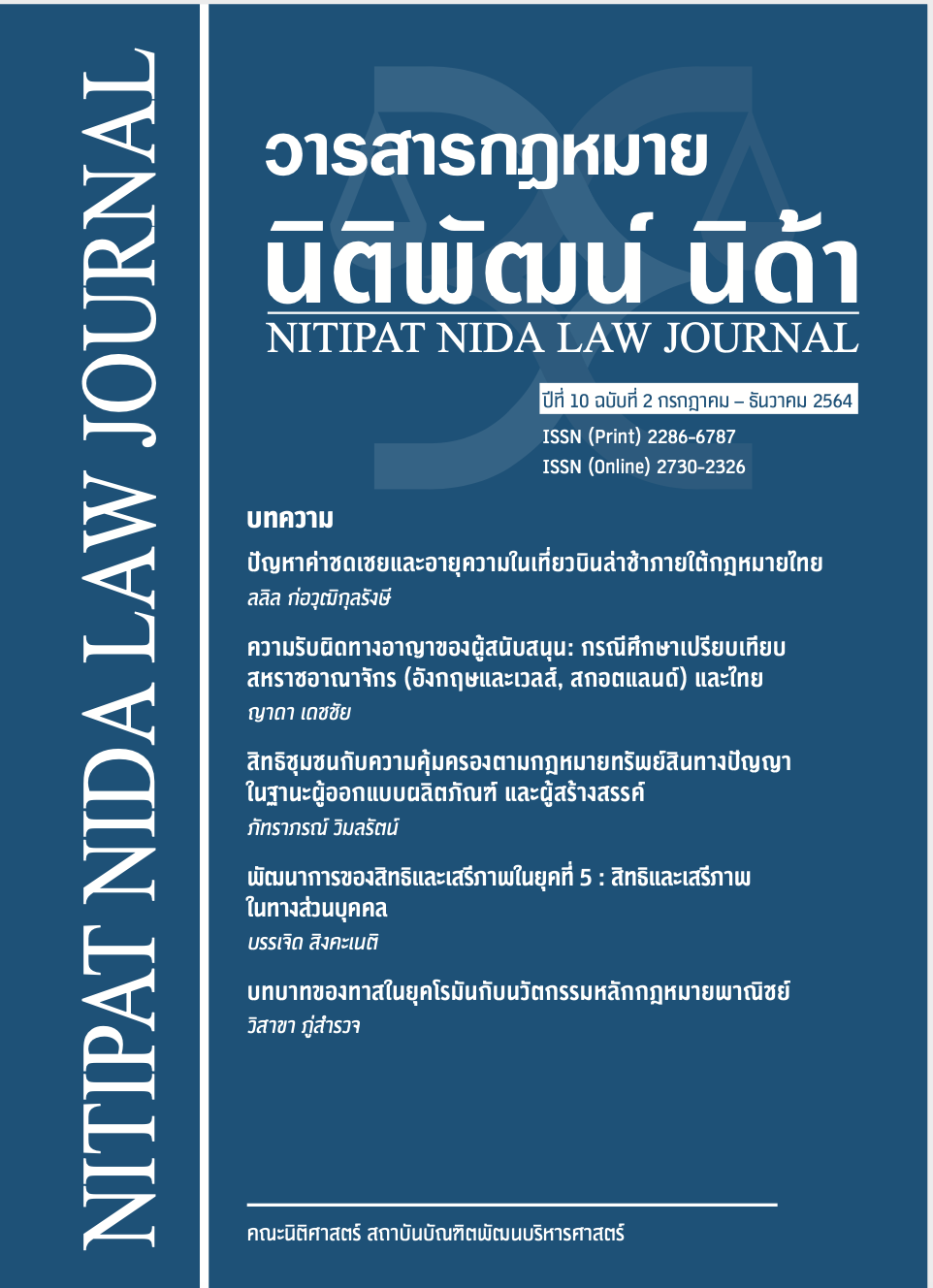Criminal Responsibility of the Accessory: A Comparative Study between United Kingdom (England and Wales, Scotland) and Thailand
Abstract
Principally, a person shall be held criminally responsible when he commits or omits an act constitutes a criminal offence. Nonetheless, although he did not principally commit such as offence, he could still be held criminally responsible under the principle of accessories. The comparative study of Criminal law of England and Wales, Scotland, which are under the Common law jurisdiction, and Thailand, which is under the Civil law jurisdiction, has shown that principally, the principle of accessories under all three jurisdictions share similar basic concepts. However, the most distinctive feature is that under the Common law jurisdiction, an accessory would be punishable as same as a principal offender. Contrary to the criminal law of Thailand, which the accessory would receive 2 of 3 sentencing of the principal offender. From the analysis, the principle of accessories under all three jurisdictions are justifiable and have pros and cons. Thus, the principle of criminalising and punishing the accessory would depend on the criminal justice policy of each jurisdiction. Either way, the punishment of the accessory would satisfy the principle of prevention and suspension of crime and ensure the public's safety.



